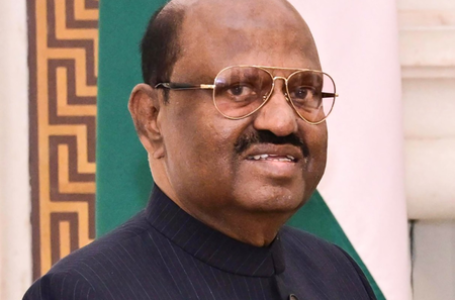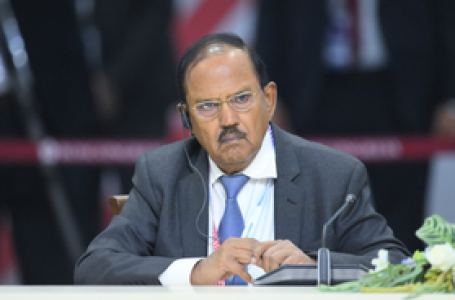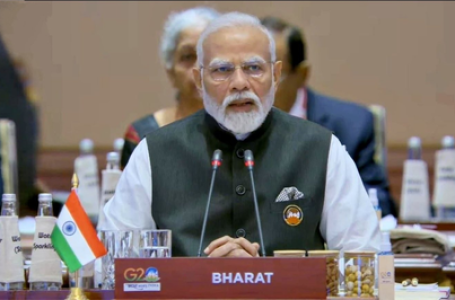By Shivaji Sarkar
March 14, 2020
New Delhi: The last quarter figures of 2019-20 fiscal may have reasons to cause worry. An uninteresting Central budget, corona virus, plummeting stock indices and uncertainty over bank mergers are thawing industrial and economic activity.
The stock market notionally lost Rs 11.28 lakh crore in a day on March 12 as sensex plunged to 32778 points – loss of 2919 points in a day. Since February 28, it is on a roll, when it plunged by 1000 points to 38235. In less than two weeks it lost about 6000 points. Foreign portfolio investors (FPI) withdraw Rs 18343 crore from Indian markets. Since January 2019, it has been a tricky year for the market. Though stocks are not indicator of the economy it reflects the overall market condition.
This can be attributed to a global panic. India also chose to be part of the panic as few understand what the COVID-19 or coronavirus is. Precaution is fine but leading nation into a chaotic panic situation was least warranted. Whether a running nose is the symptom or a dry cough, most pontificating TV experts are not aware.
The masks are doing brisk sales though Union Health Ministry says nobody in the ministry wears it nor it is needed nor it can prevent it. But the masks have definitely masked the decision-making process. The officials instead of fighting the disease are spreading scare jeopardising social and commercial activity.
The confusion has travelled to the Asian Development Bank (ADB). Assessing the possible COVID-19 losses to India it has given a wide range of $387 million to $29.9 billion in personal consumption cut. It is an ADB hypothesis but is not presumptive. The National Statistical Office says consumption growth would be around 5.9 per cent against 5.6 per cent in 2019-20.
It does not mean it is not hitting India. Impractical advisories, orders and circulars are leading to a situation of uncertainty; indecision and creating scare all around are leading to a near lockdown situations. Everyday 1000s of students go to a university or educational institutions. Decision to ban seminars, meetings and conferences add to confusions as India did during 1980 solar eclipse. Later scientists said that no eclipse is that bad but the country lost a beautiful day to panic.
Vacillating official attitudes are hitting trade and other economic and social activities. Everyone in authority is talking in ifs and buts. Different kinds of alerts and advices are increasing confusion. This needs deft handling.
Moody’s rating agency has meanwhile reduced growth projections for 2020 to 5.4 per cent from 6 per cent. It reduces forecast for China to 5.2 per cent. As per National Statistical Office, India’s third quarter GDP growth is a mere 4.7 per cent. The final 2019-20 growth is likely to be below the budgetary expectations. It could be around 5 per cent against 6.1 per cent in 2018-19. The outlook has been so since 2018 IL&FS collapse for Rs 91,000 crore fraud by the road sector.
The central budgetary provision of dual income tax procedures, high rates of 42 per cent I-T, cuts on subsidies, and dynamically increasing rail fares, high road toll, fastag and high road cess realisation of road cess on petrol to the extent of Rs 2.6 lakh crore a year, junking of cars to benefit industry are hitting the people hard. So does rising food and other inflation. Even export growth has come down. On the production side, the industry slowed down to just 0.1 percent in third quarter.
As the ADB says it has hit the purchasing capacity of the people. The Economic Survey is also not upbeat. It is critical of linkages of rent-seeking caused by politicos and industry honchos. It has led to the banks to an abysmal state.
Amid all this the announcement of merger of 10 banks to four has not been taken so enthusiastically. The market is confused. The workers are uncertain of their future in an economy that is seeing more job losses.
The formula for improving their state is through a process of amalgamation. The decision has no linkage with the present COVID-19. The decision was announced in the 2014-15 Budget. It was the first budget of the Narendra Modi government. It had done so on the basis of the dwindling performance since 2010. Part of the decision was already taken by the UPA government.
Finance Minister has announced four new set of mergers – Punjab National Bank, Oriental Bank of Commerce and United Bank of India will join to become the nation’s largest lender, Canara Bank and Syndicate to amalgamate; Union Bank of India and Andhra to merge; and Indian Bank to join Allahabad Bank. In 2017 there were 27 banks, in 2018 reduced to 21 and now to 12.
Mergers would lead to lots of problems including the customers being asked for new KYC, new debit cards, and revival of fixed deposits. Even farmers and DBT beneficiaries would have hiccup. The FM says this would be the way to better utilisation of the capital. The NPAs are around Rs 12 lakh crore. The country has recapitalised the banks with Rs 1.20 lakh crore. It would need another Rs 55,000 crore of taxpayers’ money to be reinvested for resuscitating the PSBs.
The official view is that the banks have to have larger capital to be competitive in global market. Critics say it might reduce their expenses but would also check new recruitments and lead to voluntary retirement. Bank employees are perturbed and have served strike notice for March 27. Their wage revision despite rising inflation remains stalled.
The All India Bank Employees Association (AIBEA) General Secretary SH Venkatchalam says till March 31, 2019 PSBs had a total profit of Rs 1.5 lakh crore. After adjusting Rs 2.67 lakh crore losses they are have end up with Rs 66,000 crore loss. He says that the losses are planned to be made up by retrenching staff, privatisation and reducing interest rates on poor savers’ deposits. Interest cut, he says, hurts the savings and reduces bank capital.
After 2007 Lehman sub-prime crisis, the US government had to put huge funds to keep the one of world’s biggest entity AIG. European governments also did so. The worlds’ financial system collapsed because of a private-public nexus. The government has to wade through difficult situations. It calls for a national consultation to evolve a new economy.—INFA



















